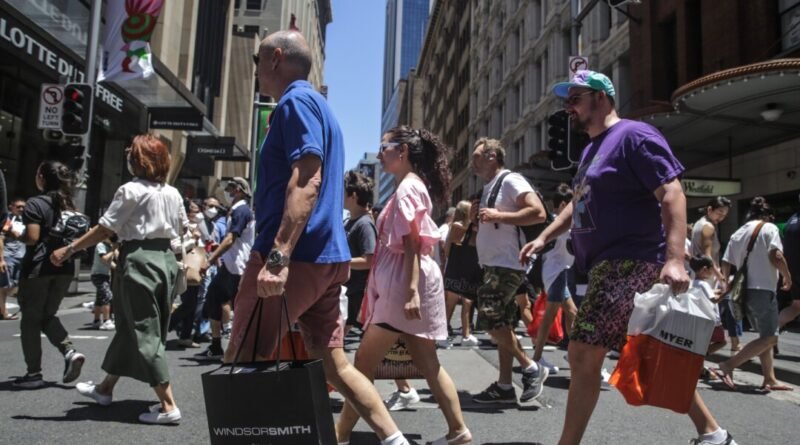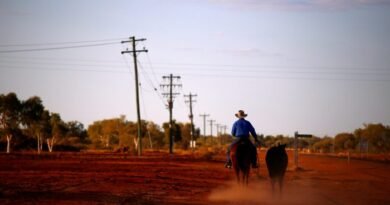Inflation in Australia Surges to 3.8 Percent on an Annual Basis in the June 2024 Quarter
Despite the rise in headline inflation in the June quarter, economists do not predict an interest rate hike in August.
Australia’s headline inflation has picked up speed in the last three months, but experts foresee no increase in interest rates in August.
This increase follows five consecutive quarterly drops in CPI from the peak of 7.8 percent in the December 2022 quarter.
During the June 2024 quarter, inflation rose by 1.0 percent, echoing the previous three months’ increase.
The primary drivers of inflation growth in the June quarter included housing (up 1.1 percent), food and non-alcoholic beverages (up 1.2 percent), and transport (up 4.6 percent).
The ABS reported that the surge in housing prices was fueled by rent (up 2.0 percent) and new owner-occupied dwellings purchased (up 1.1 percent).
Michelle Marquardt stated.
On the other hand, the rise in food and non-alcoholic beverage prices was propelled by price increases in various product categories, including fruit and vegetables (up 6.3 percent), meals out and takeaways (up 0.6 percent), and meat and seafood (up 1.3 percent).
“Fruit and vegetable prices surged this quarter due to unfavorable growing conditions leading to higher prices for grapes, strawberries, blueberries, tomatoes, and capsicums,” Marquardt explained.
“This was the largest quarterly increase in fruit and vegetable prices since 2016.”
Annual electricity prices rose by 6 percent in the June quarter, up from 2.0 percent in the March quarter.
The ABS noted that electricity prices would have increased even more without the government’s energy bill rebates.
“Most eligible households continued to receive the Energy Bill Relief Fund rebate in the June quarter. Excluding the rebates, electricity prices would have risen by 14.6 percent annually,” Marquardt added.
Despite the rise in headline inflation, the trimmed mean annual inflation rate, excluding volatile items, decreased from 4.0 percent to 3.9 percent in the quarter.
Treasurer Says Rise in Headline Inflation Not Surprising
While acknowledging the spike in headline inflation in the June quarter, Treasurer Jim Chalmers stated that it was not unexpected considering global developments.
“Global shipping issues, geopolitical tensions, and spikes in oil prices are introducing volatility and uncertainty to the global inflation outlook.
“Our headline inflation peaked later and at a lower level than many comparable economies, and our core inflation has moderated more quickly than in the US, Canada, and Euro areas.”
Chalmers also remarked that inflation might fluctuate on its downward trajectory, as seen in other economies.
Simultaneously, he emphasized that the underlying inflation rate of 3.9 percent was lower than the 5.0 percent inherited from the previous Coalition government and marked the sixth consecutive quarter with lower annual trimmed mean inflation.
“Domestic inflation, represented by non-tradable inflation, stood at 0.7 percent in the quarter, roughly half the rate in the March 2024 quarter,” he stated.

Chalmers also asserted that the June quarter inflation outcomes were not influenced by the federal budget, while highlighting the economic accomplishments under the Labor government.
“Our budget strategy is aiding the fight against inflation, not impeding it,” he claimed.
“We have achieved the first consecutive surpluses in nearly two decades, which the RBA Governor acknowledges are assisting in combating inflation.
“We are also on track for a larger-than-expected surplus, potentially the largest consecutive surpluses on record.”
Meanwhile, Shadow Treasurer Angus Taylor attributed the current inflation situation to Labor’s economic policies.
“Australians are currently experiencing significant challenges, not due to the RBA or global factors, but as a result of Labor’s domestic inflation,” he posted on social media.
“Regardless of how Labor tries to spin it, the truth is that the government’s poor economic policies are to blame.”
No Case for Another Interest Rate Hike
Following the latest inflation data, several economists have forecasted that the Reserve Bank of Australia (RBA) will not raise the official cash rate at its upcoming meeting.
Shane Oliver, AMP’s chief economist, mentioned that the June results were not as dire as anticipated.
“Trimmed mean inflation decreased to 3.9 percent year-over-year from 4 percent, which is less than expected and less alarming.
“There is no justification for a rate hike, especially with real quarterly retail sales on the decline once again.”




